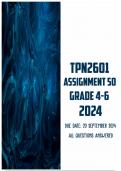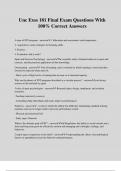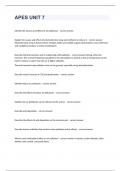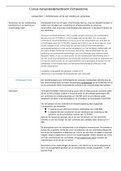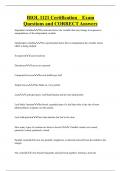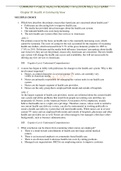Tentamen (uitwerkingen)
TPN2601 Assignment 50 (Portfolio) 2024 | Due 20 September 2024
- Vak
- Instelling
- Boek
TPN2601 Assignment 50 (Portfolio) 2024 | Due 20 September 2024. All questions answered. 1 INTRODUCTION TO TEACHING PRACTICE......................................................................................... 3 1.1 OVERVIEW OF THE TEACHING PRACTICE MODULE......................................
[Meer zien]
